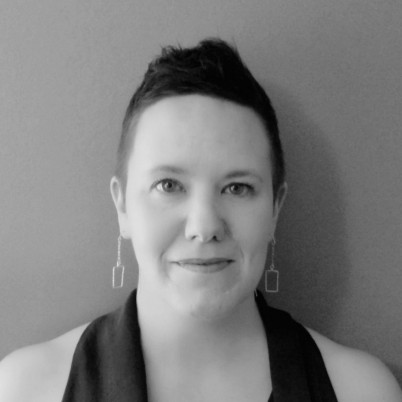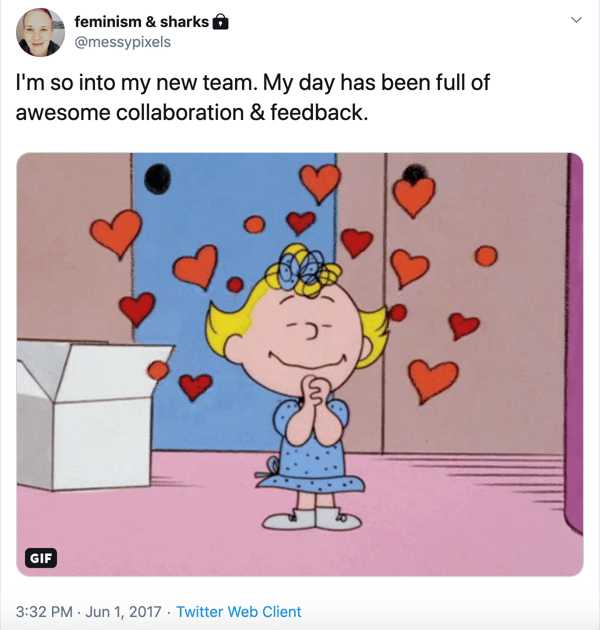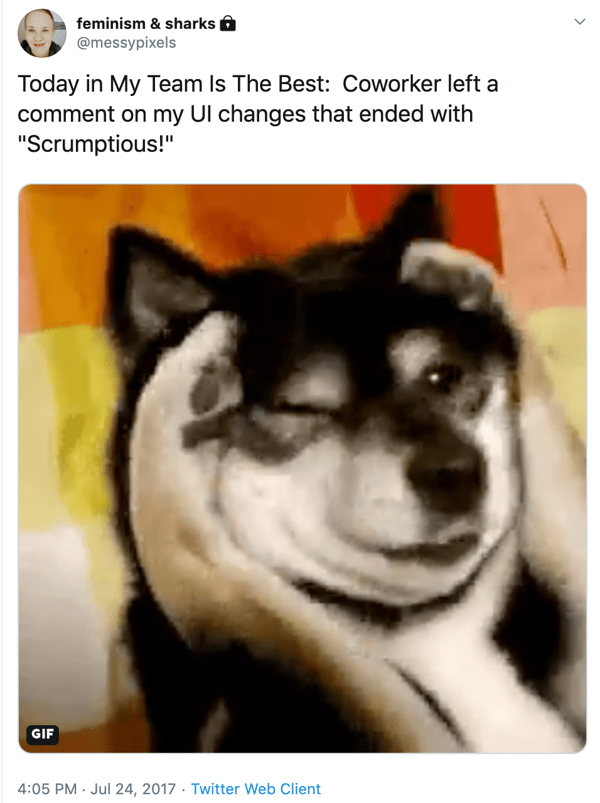Works Well With Others

Editor’s note: this post originally appeared on Angélique’s blog, Dev Journal.
I’ve been thinking a lot about teams and, based on my own lucky experiences, what makes them work well. I’ve been at Fractured Atlas for three months now and am legitimately delighted at how quickly and easily I gelled with my new team. The one thing I keep coming back to when trying to describe why I’ve been able to connect so quickly and accomplish so much is this: safety.
“Safe spaces” have been the subject of much mockery (mostly through exaggerating their intent to suggest extreme coddling vs. safety), so I initially shied away from this description. However, I keep coming back to it because it’s honestly the best word to describe what’s working. Because I feel safe at work and amongst my team, I’m not carrying the cognitive load of being defensive or trying to prove myself and, instead, I’m able to just get the work done and, in collaboration with my team, plan for and deliver on big goals.
Of course, I’m not saying anything new about the benefits of safety and empathy within teams and what it means to a company. Last year, an article on Google’s Project Aristotle was published in The New York Times Magazine and widely shared:
What Project Aristotle has taught people within Google is that no one wants to put on a “work face” when they get to the office. No one wants to leave part of their personality and inner life at home. But to be fully present at work, to feel “psychologically safe,” we must know that we can be free enough, sometimes, to share the things that scare us without fear of recriminations. We must be able to talk about what is messy or sad, to have hard conversations with colleagues who are driving us crazy. We can’t be focused just on efficiency.
—Charles Duhigg in the NYT, What Google Learned From Its Quest to Build the Perfect Team
What safety looks like and feels like may vary amongst individuals and teams, but this is what I’ve noted during my time at Fractured Atlas:
- Clear, shared values with the company and amongst the team let me bring my whole self to work and let me know I will be respected and valued. During the interview process, I was impressed that Fractured Atlas’s mission and values weren’t dusty pages on a web site that had little to do with the day-to-day work, but instead were an active pursuit. Now that I’m part of the company, this is even more clear to me and I also know that our core behavioral values are referenced by our leadership and employees frequently.
- The engineering team, specifically, has an enthusiastic culture of learning and improvement that, in order to thrive, requires that we accept mistakes and confusion and build up our communication skills. Folks I’ve paired with over the last few months have been excellent and encouraging teachers and, when reviewing my code, have been quick to call out when they’ve also learned something new. I would have never anticipated my first couple of months on the job would include learning a new programming language, and that’s only been possible because of the encouraging collaborative environment on my team. (Did I mention the engineering team is fully remote? To me, that makes this all the more impressive.)
- Furthermore, the culture of improvement isn’t just around the code we deliver, but also relevant to how we work together and communicate. In weekly meetings, we reflect on and tweak our process and create time to talk about things that impact how we collaborate with other parts of the company. Team members and managers actively work to hear from every individual and consider every perspective. I appreciate that the commitment to empathy and communication isn’t unilateral, but embraced and modeled by all.
- Team members are invested in what we’re building and making it better. In place of competition or us-vs-them dynamics, we’re joined by an enthusiasm for what we’re doing and how we’re all contributing. This feels especially apparent to me in a UX/front-end role, which some developer cultures belittle. There’s not even been a hint of that in my experiences to date — instead, my teammates celebrate my contributions and seek out my expertise (with a
#UXLOVEtag on Trello cards that need my attention!). This, in particular, has made it frictionless for me to contribute, learn, and share with the team.
I’m grateful for this amazing experience and for the team members who have established these working norms that make it possible for a brand new person to swoop in and feel pretty quickly at ease, not just in my area of expertise, but also adapting to new tools and pushing myself to learn new things. I know many teams and companies don’t get this stuff right or prioritize it, and I’m grateful to be contributing my energy to a group that does. Doing so does more than let me be my whole self at work, it lets me be my best self.
About Angelique Weger
Prior to joining Fractured Atlas, Angelique developed web sites as a freelancer, in collaboration with Left Bank Creative, and as senior front-end developer for Detroit Trading. Before making working in tech, Angelique worked at several art museums, including serving as the von Hess Graduate Fellow at the Baltimore Museum of Art. She received a BA in journalism from Indiana University of Pennsylvania, where she attended the Cook Honors College, and has also studied at Sheffield-Hallam University in the History of Art, Design and Film program and graduate studies in Museum Communication at University of the Arts.



